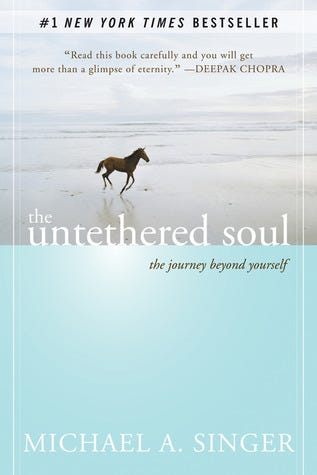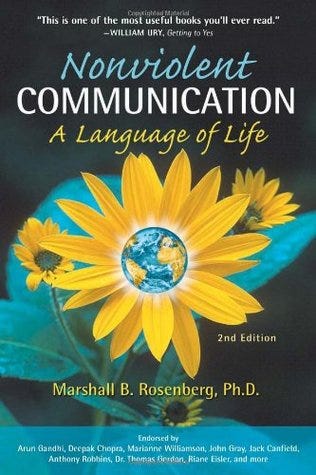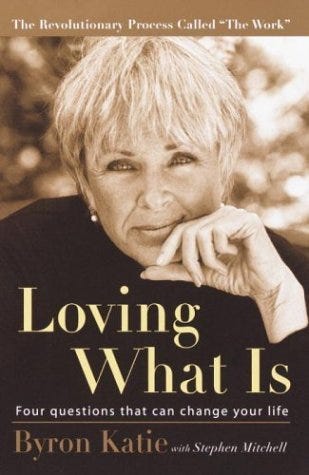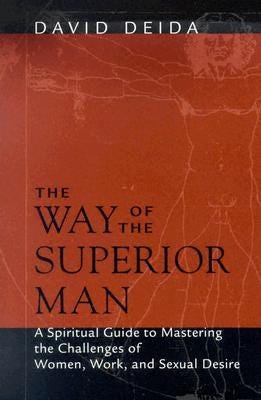10 Books to Upgrade Your Life in 2021
Sometimes we want to explore the boundaries of our life experience; and take responsibility for how we can make it better. I’m an ever-curious student of life and have learned how much self improvement comes from the inside-out. I’ve read around 250 personal development books, these 10 made a transformational difference to the way I think, feel and experience life.
I see good books as objects of carefully-edited, condensed life wisdom, honed by the minds of world-renowned thought leaders; available for a fraction of the cost of a seminar. The life insights and mental freedom that transformational books can give us are priceless. We can read at our own pace — watching how our inner world responds to their words.
Life can feel busier now than ever (an interesting article on why here), so it can seem hard to find the time for books. A few years ago, I heard that (someone with as much going on in life as) Warren Buffett gets through 200 books a year. Also about the scientifically-backed benefits of reading - including potentially helping us to become smarter and more emotionally intelligent.
After reflecting on the life lessons I seem to learn from non-fiction books; I figured that I could cut back on other time-passes like watching TV or mindlessly scrolling through social media. I dedicated half an hour a day to read them— more on that later.
10 foundational books to upgrade your life experience:
1. Freedom From The Known ~ J. Krishnamurti

Named “One of the greatest thinkers of the age” by the Dalai Lama himself; this is my favourite collection of teachings from a philosopher who influenced spiritual thought-leaders like Allan Watts, Eckhart Tolle and Deepak Chopra.
Each chapter is covers a profound aspect of the human condition, like time, pleasure or violence. If read carefully, this book has the potential to deliver mind-blowing upgrades to the way we think.
Provocative lessons fill each sentence. Krishnamurti challenges us to reflect on society’s values, our judgments, and how to be free and present in each moment. If I could recommend one of these books to change the way you view your life — that inspired so many others — this would be it.
2. Attached: The New Science of Adult Attachment and How It Can Help You Find — and Keep — Love ~ Amir Levine, Rachel S.F. Heller

Exploring adult attachment theory (why we attract and bond to the people we do); this book discusses three main relationship attachment styles:
- Around half of us are predominantly secure, or comfortable with intimacy;
- The rest exhibit non-secure anxious (fearing a lack of love) or avoidant (fearing loss of independence) tendencies in relationships.
Anxious and avoidant types tend to subconsciously attract each other; reaffirming their beliefs that partners will “abandon” or emotionally “overwhelm” them respectively. You can take the quiz here.
If you feel “stuck” repeating unhealthy relationship patterns — like I was — understanding these principles can be key to start to shifting towards relationships where both people’s needs for emotional safety can be met.
3. The Untethered Soul: The Journey Beyond Yourself ~ Michael A. Singer

This beautifully-crafted work explains concepts like mindfulness and consciousness clearly. It’s an enjoyable read to the curious newcomer, as well as to those already well on their personal development journey.
Taking in some of the ideas from this book, like that we are not our thoughts or emotions (if we are able to grant them third-party observation), can transform our life experiences and responses to them, resulting in a calmer mind and stronger emotional self-regulation. We can see things more clearly as they really are, instead of being clouded by subjective, negative, judgements.
If you want a contemporary take on improving how you relate to your thoughts, emotions and the outside world — for a calmer, happier life — this book is for you.
4. Nonviolent Communication: A Language of Life ~ Marshall B. Rosenberg

Highly-rated by the larger-than-life coach Tony Robbins and tech CEOs (like Microsoft’s Satya Nadella) alike; the nonviolent communication method teaches us how to reliably communicate effectively, with less judgement and more empathy.
The theory within can challenge our natural human tendency for reactive outbursts that provoke defensiveness in others. It teaches how to calmly request our needs in ways much more likely to be heard and elicit a positive response; making our relationships more co-operative and less antagonistic.
Broadly useful, the technique can be applied to our interactions with anyone from colleagues, our family, or partners; as well as the briefest encounters where our preferences are discussed with another human being. It makes them more successful and harmonious.
5. Loving What Is: Four Questions That Can Change Your Life ~Byron Katie, Stephen Mitchell

Following the author’s “awakening” several decades ago; this book provides a simple but powerful method to help us to take more responsibility for — and therefore power over — the way we react to our own lives. With the aim of ultimately experiencing far more freedom and everyday feelings of compassion.
First recommended by a successful, finance-type, who could not stress the positive effects it had on him enough. The theory in this book moved me away from feeling like a “victim” or blaming others for how I feel; towards learning to love unconditionally and feeling far more acceptance and joy in any given moment.
Packed with clear case studies, if you feel stuck in patterns of fear, blame, anger, or like you’d like more love in your life; this book is highly effective at shining a radically different light on any situation we are struggling with.
6. Conscious Loving: The Journey to Co-Committment ~ Gay Hendricks, Kathlyn Hendricks

Written by a pair of long-term married couples’ counselors; this is a practical guide to making romantic relationships successful and happy — rather than unaware and dysfunctional.
The book encourages us to reach “conscious” agreements within a relationship that both parties are happy with; rather than assumptive ones couples often sleep-walk into. It includes practical exercises to work through, and solutions to common issues like balancing the need for closeness and time apart; power struggles and achieving excellent communication.
I’ve seen first-hand how the tools in this book can mend common relationship problems; help heal emotional trauma; and clear resentment that can otherwise build up within a less carefully-considered relationship.
7. The 5 Love Languages: The Secret to Love that Lasts ~ Gary Chapman

After years of counselling married couples, Dr. Chapman identified five love languages — or different ways people prefer to show and receive love . These are Words of affirmation — for example, saying “I love you” or compliments; Spending quality time — where we give someone our full attention; Physical touch —such as hugging or making love; Acts of service — like making your partner dinner; and Gifting .
Painful misunderstandings occur when we mistake receiving affection in someone else’s preferred love language (like being given an expensive gift), instead of our own (such as being hugged often) — for not being loved.
Understanding this simple theory can prevent unintentional hurts, and help us to have more satisfying and longer-lasting relationships. This book can also apply to friends and family; explaining apparent disparities in our wider experiences of giving and receiving love.
8. Time and How To Spend It ~ James Wallman

This book is a practical, evidence-based guide to making the most of the “most precious thing we have” — our time.
With such a high proportion of our modern lives spent on our tech devices or acquiring objects, rather than meaningful connections or experiences; this book is particularly useful and relevant.
After analysing research and literature on success and fulfillment; Wallman lists seven potential qualities of our life experiences that make them more fulfilling and enriching. These are Story, Transformation, Outside and Offline, Relationships, Intensity, Extraordinary, Status and Significance. Interactive quizzes and worksheets are also there, to help us proactively improve the quality of our own time, and therefore, our lives.
9. The Way of the Superior Man: A Spiritual Guide to Mastering the Challenges of Women, Work, and Sexual Desire ~ David Deida

Primarily written for the masculine reader, but relevant to anyone who wants to learn more about masculine-feminine dynamics. This book explains human attraction, motivation and strengthening the “masculine” and “feminine” aspects of ourselves.
Often confused with gender, these are instead explained as two equal and opposite energies (like Chinese yin-yang) within everyone; with most of us experiencing one or the other as our preferred, or more dominant, masculine or feminine essence.
It helped me understand my own behavior and those around me, in ways I was previously totally unaware of. As well as exploring what makes romantic partners a good match; how to develop our own inner strength; and how to maintain attraction in long-term relationships.
10. Walking Each Other Home: Conversations on Loving and Dying ~ Ram Dass, Mirabai Bush

A fascinating exploration into one of the great mysteries of life — death. Still taboo in Western societies, though more openly discussed in some cultures, death is a ubiquitous, important part of life. However, many of us fear or are deeply mystified by it.
Mostly written as a wisdom-packed dialogue between close friends. This book explores living life to the fullest, our identity, achieving immortality, and death as the ultimate pathway to “oneness”. It also gives us thoughts on coming to terms with ageing, grief and our own death. As well as how to be with those who are dying, and what might happen after we “move on”.
An unexpectedly comforting and mind-expanding discussion from one of the greatest spiritual thought-leaders of our time. Ram Dass, who recently passed away himself - is the author of this unusual and fascinating read.
How to read more life changing books…
As I mentioned earlier, before I got into the habit; I found the idea of finding enough time to read daunting. If you empathise, here are a few tips:
- Have a couple of books on the go in different formats, topics or intensity levels, so that you’re more likely to feel like, and manage to fit in, more reading time. For example, you could have an audio book to play when you’re walking around (like via an Audible subscription;, a riveting paperback on your bed stand; Kindle titles for when you’re travelling; or an easier read for switching off after work.
- Read what is appropriate and attractive to you in the moment. If you start a book that you just can’t seem to get into, take what you’ve learned so far and move on to the next one. There are so many great books out there. It’s much better than getting stuck because you’re just not into finishing what you began to read.
- If you want to glean the main points from a book without spending hours reading the whole thing, try summary sites like Blinkist or blog posts. You may be inspired to dive deeper if the subject resonates with you.
- Ask friends or check Goodreads for recommendations in different genres, keep a phone note file of good books you hear about on the fly.
- Start or join a book club with friends, and aim to read a book a month together (@bookstochangeyourlife on Instagram is a new inspirational one). Accountability buddies make us far more likely to reach our goals.
Reduce distractions
- Every time you feel like checking Netflix or picking up the TV remote, pick up an interesting book instead. Keep one in the spot where you usually get distracted by tech.
- Keep your smartphone out of arm’s reach when you’re reading; and set an alarm clock for the amount of time you’d like to dedicate to it. It also helps to charge your phone away from your bed to prevent unproductive bedtime scrolling — half an hour of reading before we sleep, or when we first wake up, is a great way to wind down from or start your day instead. If you feel overly-attached to technology, check out the witty read “How To Break Up with Your Phone” by Catherine Price.
- To consolidate your own learnings and keep your eyes on the page, you can go through printed books with a pencil or highlighter for key points. Maybe also turn over the corners or tab pages, and make summary notes afterwards.
- For other tips on starting and maintaining good habits, James Clear’s “Atomic Habits” is super useful, as is Hal Elrod’s “The Miracle Morning”.
To conclude on these life upgrading books
As well as reading, mind-calming yoga and meditation practices (check out the Insight Timer or Calm apps, or Mind: Unlocked for a deep-dive online course); personal development courses (my favourite is iDiscover 360); and healers and mentors (Amy Rachelle is one of the best I know) have also been a huge help for my personal growth journey.
Transformational work can sound tough to do, but in IMHO staying stuck where we are is harder. I hope you find these ten books as illuminating as I did, and they make a positive difference to the way you relate your life, those around you and, most fundamentally, to yourself.
Thanks for reading. If you have any comments or questions please comment below, or contact me.
Leave a Reply Cancel reply
Get useful updates
Sign up for Jessica Warren's newsletter with the latest wellness event invites & personal development articles. You'll get powerful coaching questions & recommended reads.
I think this is among the most important info for me. And
i’m glad reading your article. But should remark on some general things,
The web site style is perfect, the articles is really nice : D.
Good job, cheers